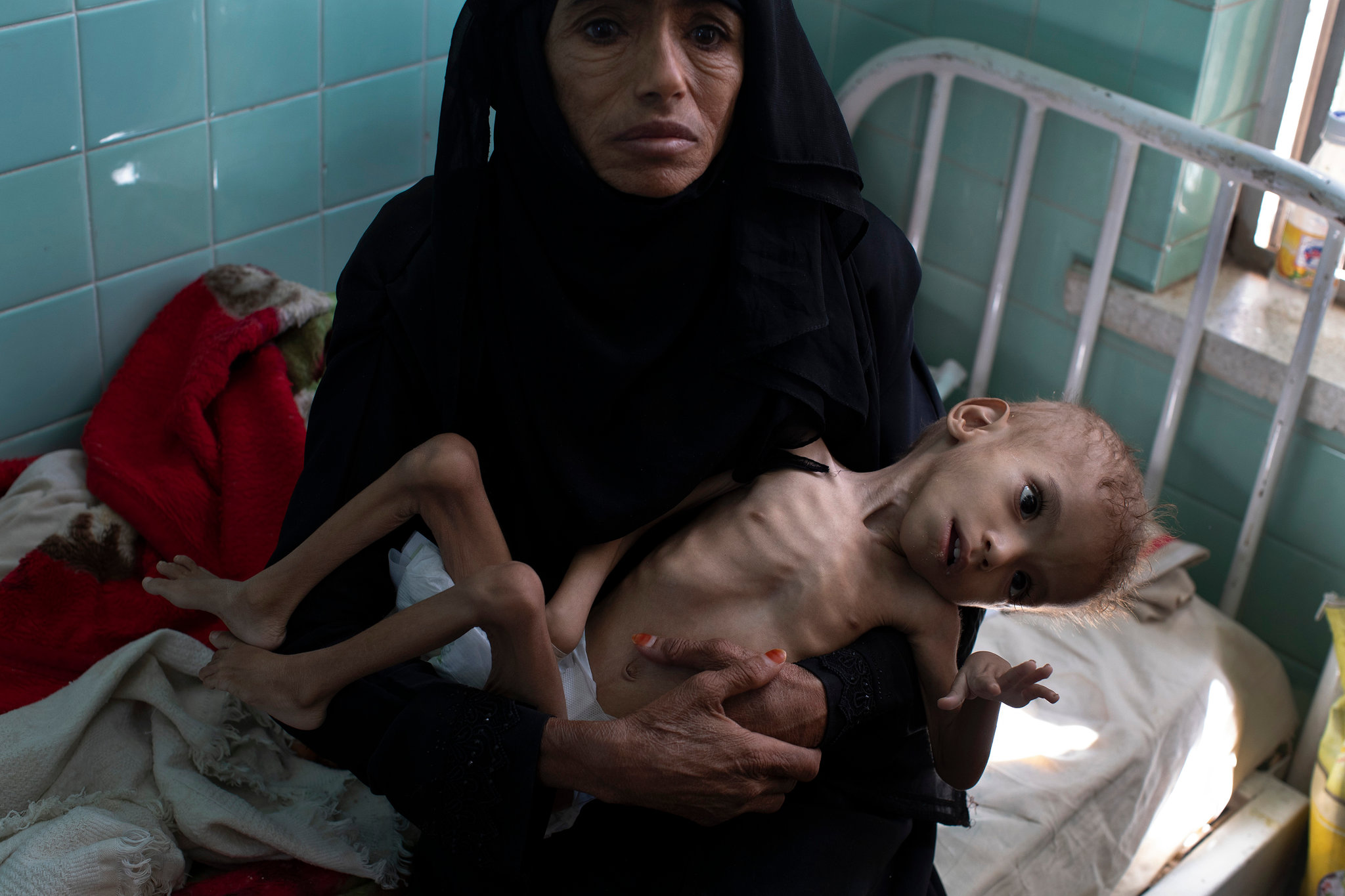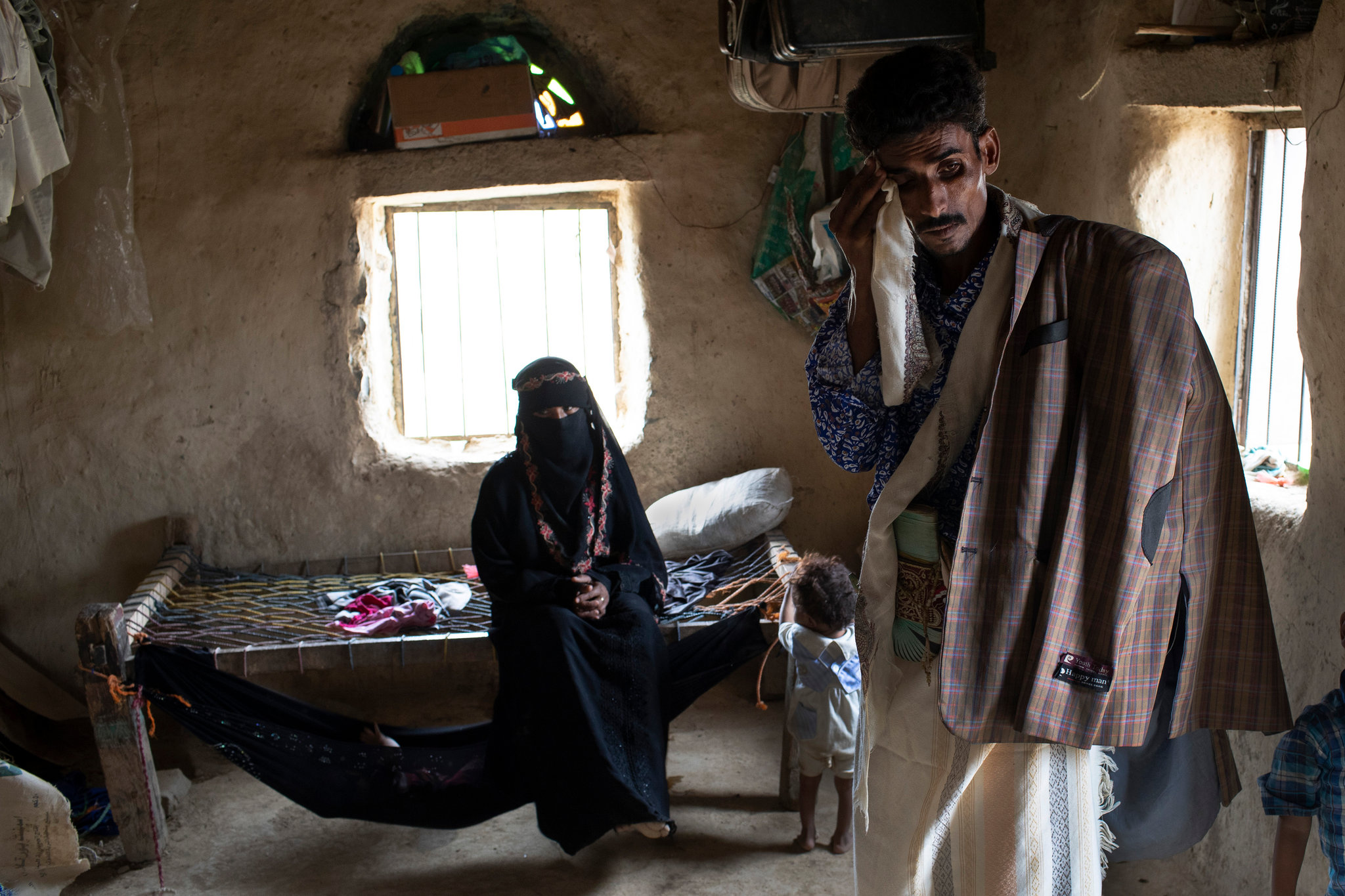VICKY STEWART discusses the war in Yemen and Britain’s involvement in it.
‘Food is not a weapon, stop arming Saudi.’ This was the chant that rung out across from Downing Street on a cold evening in December. Most of us were probably gorging on mulled wine and mince pies, with the occasional glance at a news cycle filled with images of Theresa May dwarfed by her Christmas tree and convincing no one that she would sort out Brexit. It is one of those clichés that parents say to make us finish all our food: ‘Think of the starving children.’ But with over 14 million Yemenis at risk of starvation, including 1.8 million malnourished children, now is the time to take that to heart.
On 13th December dozens gathered to show solidarity with the Yemeni people and to protest against the British government for arming the Saudi coalition. The protesters, who were organised by London Students for Yemen and the International Campaign for Justice, formed a small but meaningful crowd. However, considering Yemen is such a cataclysmic issue we must ask why wasn’t the group larger? You would think that any politically engaged student who had read up on the current situation in Yemen would grab their banner and megaphone and be out the door. In comparison, around 100,000 were reported to have gathered to protest against Trump’s visit in July and a staggering 700,000 people gathered for the People’s Vote March in October. It seems obvious that yet another consequence of the dominance of Brexit and Trump in the media is leaving Yemen under-publicised and the public too exhausted to look beyond the Western World.

The conflict in Yemen has been going on for over 4 years between the Houthi rebels and the internationally recognised government who are backed by the Saudi coalition (Kuwait, UAE, Bahrain, Egypt, Morocco, Jordan, Sudan and Senegal are all members), yet few people in Britain know much about it. The issue gets tragically little attention in the UK: a report in March 2018 showed that only 49% of Britons even knew that there was a conflict in Yemen at all.
The first speaker at the protest emphasised ‘Don’t get lost in the numbers,’ but as they are so astronomic it is hard not to. Figures from the UNHCR show that on top of millions facing malnutrition, there are 56,000 casualties due to airstrikes, about 2 million people are currently internally displaced across the country, over 75% of the population are in need of humanitarian support, 8.4 million don’t know where their next meal is coming from, 19.3 million don’t have access to safe water and basic hygiene and 25% of children aren’t in school.
‘We are ashamed of our state,’ cried a protester. The sadness was written on the demonstrators’ faces. It is poignant that we as the youth should have to remind our government of its own ethical duty. By selling arms to Saudi Arabia Britain is violating international law and is going against its own commitments to regulate the arms trade. The organisers of London Students for Yemen stated clearly, ‘we will not tolerate military ties with morally dubious regimes.’
The UK is complicit in the war in Yemen by providing planes and training for pilots that kill innocent civilians in airstrikes. According to the Campaign Against Arms Trade, the UK has licensed over £4.6 billion worth of arms to Saudi Arabia since the bombing began in March 2015, which the government admits Saudi Arabia has used in its attacks on Yemen. Typhoon and Tornado aircraft made by BAE Systems have been central to the attacks. Worryingly, BAE Systems also sponsor the Centre for Ethics and Law at UCL. The US senate have voted to end military aid for Saudi Arabia and MEPs voted in October for an ‘EU wide embargo on Saudi Arabia’, so why isn’t Britain following suit?

A speaker from the International Campaign for Justice stated: ‘The time to act is now, deep concern is not enough.’ It seemed prescient that as this very protest was taking place leaders from both sides of the conflict were gathered in Sweden to discuss peace. A ceasefire was agreed in the port of Hodeidah on 13th December so that critical humanitarian aid can reach Yemen. UN Secretary General, António Guterres reported that he was encouraged by the ‘real progress’ made but equated it to a ‘little bit of water poured into the glass’ that is neither half full nor half empty. This is the first step forward in years and must in some respects be due to international spotlight put on Saudi Arabia after the murder of Jamal Khashoggi. Progress has been made but peace is a long way off; now is the time to shout louder. The government may be increasing their prosecution of political protests like the Stansted 15 who have been convicted of terrorism offences, and the 14 participants of the Extinction Rebellion protests who were arrested in November – but this only shows the power that protest holds. We need more protests like this one for Yemen in order to hold the government to account.
A recent report from Christian Aid highlighted how 50% of the UK aid budget is allocated to conflict-affected areas but, conversely, 50% of the UK’s arms exports are sold to countries within the same regions. Why bother with foreign aid at all if it is just a token gesture of benevolence from those who are more interested in the cash that arms deals bring in? We have to be aware of our impact because at this point our aid in Yemen is the equivalent of giving an aspirin to someone you just hit with your car – more insulting than it is helpful. If more people are aware of Britain’s role in Yemen more can be done to address this hypocritical contradiction in policy.
This conflict has been allowed to go on for too long and we must ask ourselves, why? ‘If they were white, they’d be fed,’ read one protesters sign. Continuing to ignore an underlying racial bias, and a tendency to turn away from news in the Arab world will only further increase divisions. Yes, the conflict may seem complicated and yes, we may be distracted by Brexit but that doesn’t mean that we should turn in on ourselves. Another sign asked: ‘Would it have mattered more if they weren’t Yemeni?’ These are uncomfortable questions but ones which we must try to engage with. We need to continue to put pressure on our government and hold them accountable for their compliance in this war.
London Students for Yemen will continue to plan future events and actions, you can follow them on Facebook.
Featured photo courtesy of Jonathon Brady.





